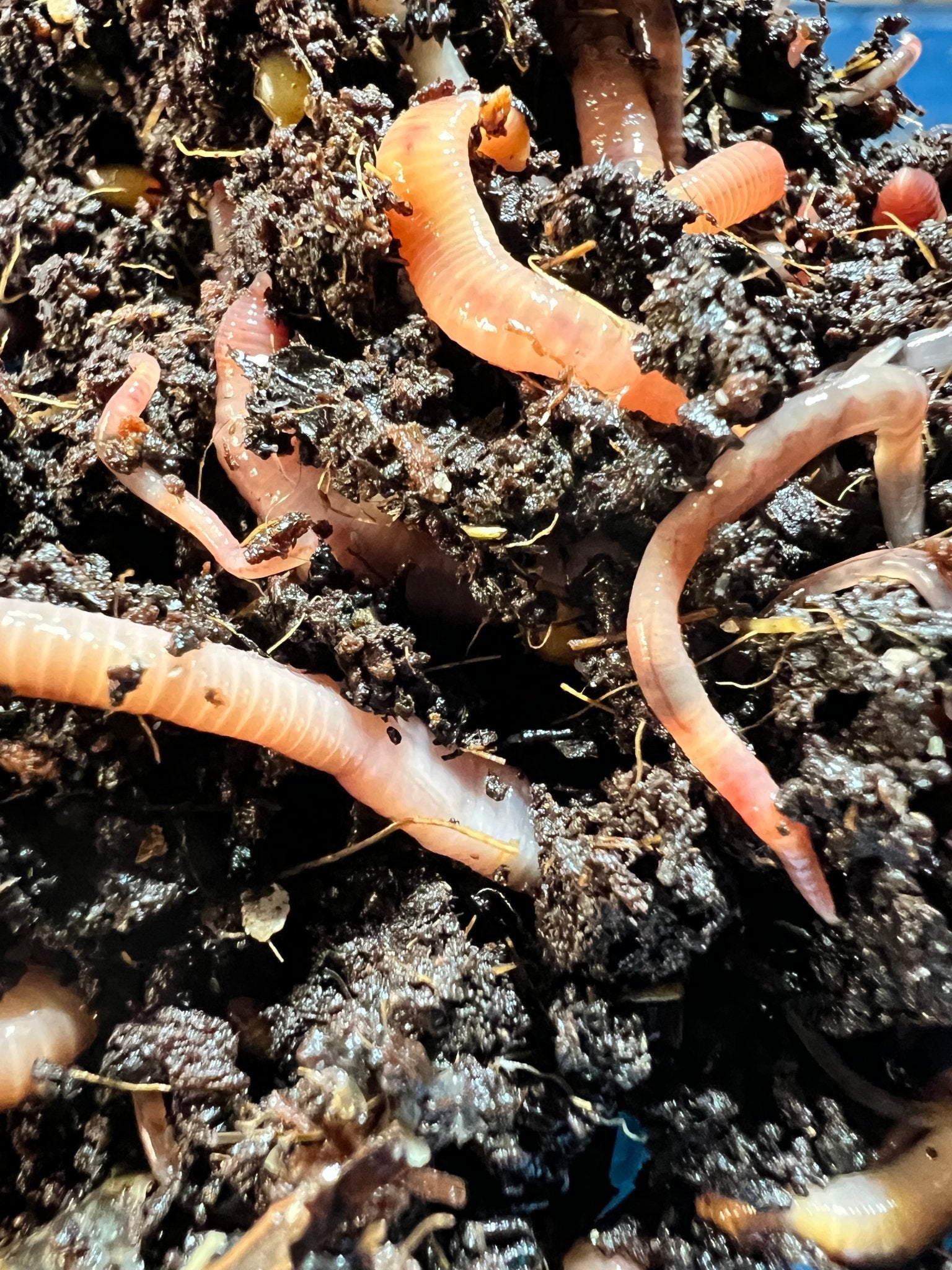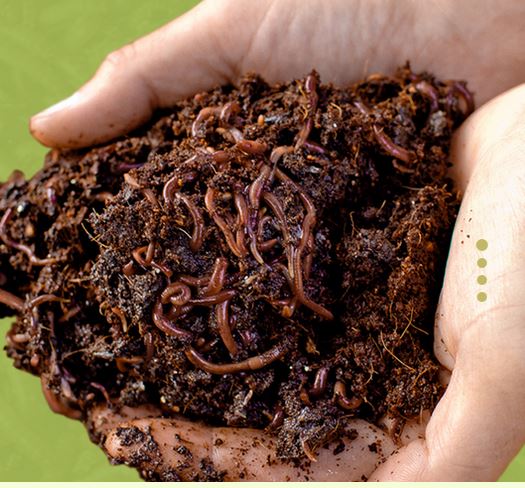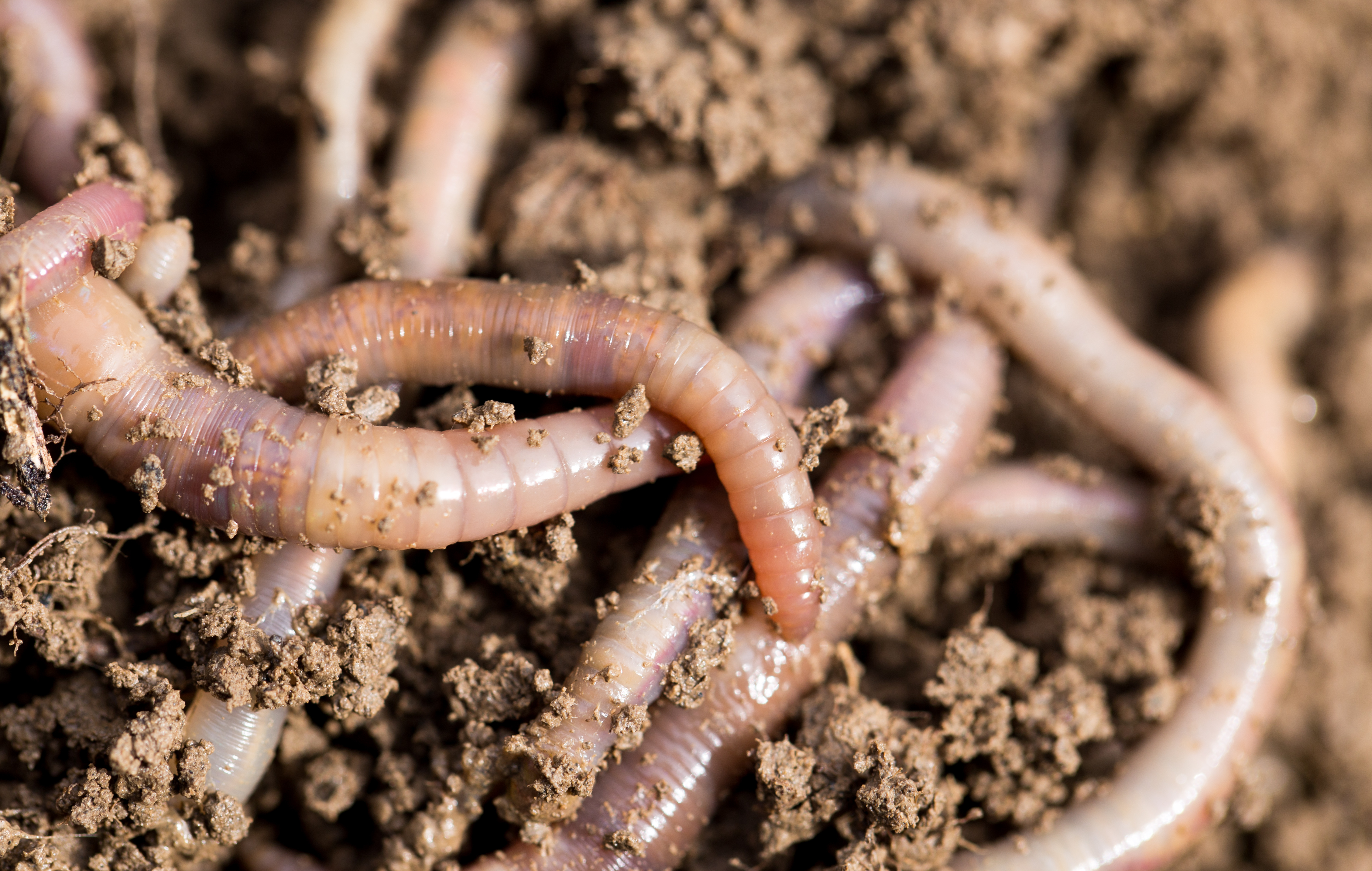Costs Quality Red Wiggler Worms - Improve Your Garden's Fertility
Costs Quality Red Wiggler Worms - Improve Your Garden's Fertility
Blog Article
Red Wiggler Worms Demystified: Unlocking the Secrets of Vermiculture for Greener Living and Nutrient-Rich Soil
In the realm of sustainable techniques for improving dirt top quality and promoting eco-conscious living, red wiggler worms play an essential yet usually overlooked duty. These humble creatures have the exceptional capacity to change organic waste into nutrient-rich castings that act as a potent all-natural plant food. By diving into the world of vermiculture, one can uncover a plethora of benefits that expand much beyond standard composting approaches. Recognizing the intricacies of looking after these worms, optimizing their atmosphere, and utilizing their castings can result in a greener way of living and healthier dirt for plants to grow.
The Role of Red Wiggler Worms
Red Wiggler worms play a crucial duty in composting systems by successfully breaking down organic matter right into nutrient-rich castings. These starved eaters eat a selection of natural materials, such as kitchen scraps, yard waste, and paper items. As they feed, the worms' digestive system processes break down the raw material into a fine, dark, and nutrient-dense product called worm spreadings or vermicompost.
The spreadings generated by Red Wiggler worms are highly advantageous for soil health and wellness and plant growth. They are abundant in essential nutrients like nitrogen, phosphorus, and potassium, which are essential for supporting healthy and balanced plant development. In addition, worm castings include helpful microorganisms and enzymes that assist boost dirt framework, rise water retention, and enhance nutrient uptake by plants.
Benefits of Vermicomposting

Furthermore, vermicompost, the nutrient-rich final result of vermicomposting, acts as an excellent organic plant food and soil conditioner. It boosts soil framework, improves dirt aeration, and increases dirt wetness retention. These residential properties add to healthier plants with more powerful root systems and far better resistance to bugs and diseases. Vermicompost also enhances the dirt with vital nutrients like potassium, phosphorus, and nitrogen, promoting plant development and general soil fertility.
Additionally, vermicomposting supports lasting horticulture methods by providing a natural and chemical-free option to artificial plant foods. Red Wiggler Worms. This environmentally pleasant method not only enhances the dirt yet also assists minimize reliance on harmful chemicals, promoting a greener and much more sustainable method of gardening
Setting Up a Worm Bin
When developing a worm bin for vermicomposting, proper arrangement is crucial to ensure the success of the composting procedure. The very first action in establishing up a worm bin is selecting an ideal container.
After including the bedding, present the red wiggler worms to the bin. It is advised to begin with a handful of worms and gradually raise as they multiply. The worms should then be provided with food scraps such as fruit and veggie peels, coffee grounds, and eggshells. It is necessary to avoid including meat, dairy, oily, or salty foods to prevent bring in bugs and creating unpleasant smells.
Routinely keep an eye on the wetness levels and temperature level in the worm container to ensure optimal conditions for the worms. With correct configuration and maintenance, the worm bin will properly transform natural waste right into nutrient-rich compost for your plants and garden.
Collecting Worm Castings
To effectively gather nutrient-rich worm castings from your vermicomposting system, a methodical harvesting method is vital. When it comes time to gather the worm castings, there are a couple of key actions to comply with to ensure an effective process.

Troubleshooting Common Issues
Recognizing website here and addressing common challenges that may arise throughout the vermicomposting procedure is vital for keeping a healthy and balanced and productive worm container. Adding excess food scraps can lead to an accumulation of wetness and acidity in the worm bin, possibly hurting the worms. Another concern is undesirable odors originating from the worm bin.
In addition, if the worm populace is declining or the worms appear unhealthy, maybe as a result of environmental stress factors such as extreme temperature levels or pH degrees. Checking these aspects and making needed adjustments is necessary for the well-being of the worms. By troubleshooting these usual problems quickly, vermicomposters can make certain a smooth and successful vermicomposting process while keeping a growing worm populace.

Conclusion
Finally, red wiggler worms play an essential function in vermiculture by damaging down natural issue right into nutrient-rich dirt. The advantages of vermiculture consist of greener living and boosted soil high quality. Setting up a worm container is crucial for effective vermiculture, and gathering worm castings gives beneficial compost for gardening. By recognizing and fixing typical issues, individuals can open the secrets of vermiculture for lasting living and much healthier soil.
As they feed, the worms' digestive system processes break down the organic issue right into a penalty, dark, and nutrient-dense material understood as worm spreadings or vermicompost.
The spreadings created by Red Wiggler worms are highly useful for dirt health and wellness and plant development. Adding excess food scraps can lead to a buildup of dampness and level Get the facts of acidity in the worm bin, potentially damaging the worms.Furthermore, if the worm populace is declining or the worms show up undesirable, it might be due to ecological stress factors such as extreme temperature levels or pH levels. Establishing up a worm bin is important for effective vermiculture, and harvesting worm castings offers valuable compost for horticulture.
Report this page